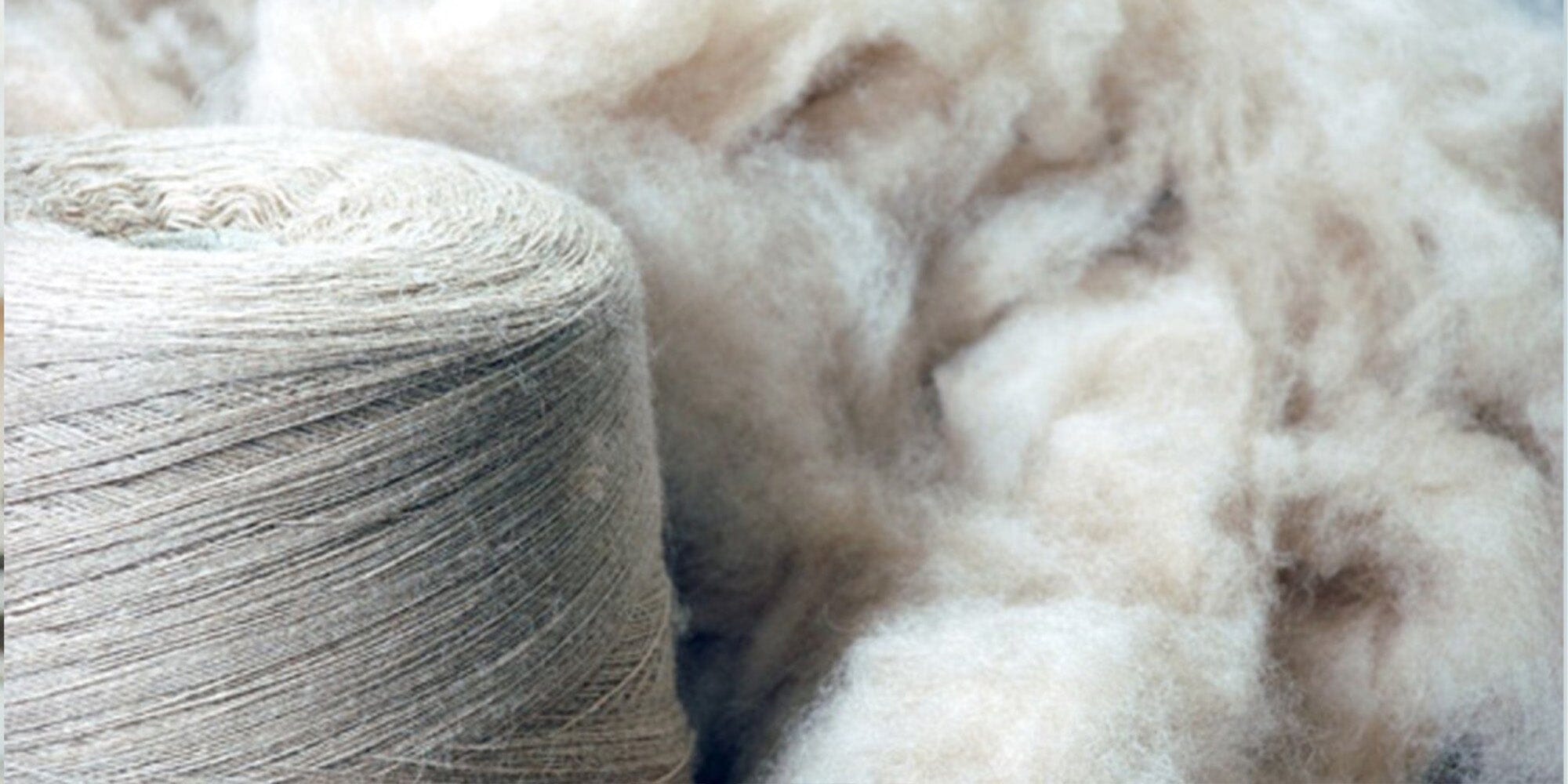
Sustainability and Our Sweaters
At 27 Miles Malibu, our commitment to sustainability goes beyond a label and marketing; it's a way of life. We cherish the beauty of California and the Earth, and that's why we are dedicated to making every step of our journey as ethical and eco-friendly as possible. We're proud of the strides we've taken, from sourcing organic and recycled materials for our sweaters to supporting local artisans who share our passion for quality and responsibility. But we know there's always more we can do. We're excited to embark on this sustainability journey, eager to reduce our environmental footprint, enhance transparency, and educate our cherished customers on the vital role of sustainable fashion. Together, we'll celebrate the beauty of California and the Earth in every stitch and every choice we make.
The Sustainable Cashmere Standard
We aim to meet the high standards set by ABT Foundation’s Good Cashmere Standard® and the Sustainable Fibre Alliance. Both groups have the mission of transforming the cashmere industry by ensuring the welfare of cashmere goats and improving the working conditions of farmers. By creating an ethical, cruelty free environment on goat ranches, these groups are creating a sustainable product and future for our planet. We take pride in unequivocally adhering to both organizations policies and standards.

What is the Good Cashmere Standard?
Good Cashmere Standard® is the first independent wool sustainability standard for high-quality cashmere. The Good Cashmere Standard® has been developed with input from animal welfare specialists as well as industry experts. An advisory board composed of cashmere producers, non-governmental organizations, retailers, and brands regularly reviews the standard and its verification system based on the results of the audit process and any new scientific findings. Their standards are a set of regulations that covers animal welfare, the protection of the environment, and the management of farms.
What is the Sustainable Fibre Alliance’s Mission?
The Sustainable Fibre Alliance (SFA) is on a mission to revolutionize the cashmere industry, collaborating with shepherds, farmers, traders, processors, manufacturers, brands, and retailers to champion sustainability. We recognize the critical importance of sustainability in this industry, as it addresses the challenges faced by shepherds and their livestock, from overgrazing to land degradation and the impacts of climate change. Our comprehensive approach ensures sustainability throughout the supply chain, integrating social-ecological research and traditional knowledge to bring about responsible grazing management, regenerative land-use practices, and humane animal husbandry. Through our initiatives, we not only foster positive change within the cashmere industry but also make a significant environmental impact, reducing overgrazing, mitigating land degradation, and lowering the carbon footprint, all while supporting the livelihoods of local communities and preserving vital ecosystems.

27 Miles Malibu and Sustainability
At 27 Miles Malibu, we believe in the transformative power of sustainable and ethical practices in the fashion industry. We recognize that choosing the right yarn for our sweaters is not just a decision but a responsibility. We meticulously consider various criteria, seeking sustainable and affordable yarn options that align with our commitment to the environment and social responsibility. The beauty of traceable, renewable, and recycled materials is not just in their eco-consciousness but in the lasting positive impact they have on the world. Our partnership with nomadic farmers further echoes our dedication to sustainability, promoting traditional, low-impact practices in yarn production. Ensuring above-standard wages for these partners isn't just a business choice; it's a reflection of our ethos and commitment to quality. Healthy goats, part of our sustainable sourcing, produce yarn that not only speaks of quality but also stands as a testament to our brand's eco-conscious values. To complement these efforts, we explore additional sustainability practices, from reducing our carbon footprint to incorporating eco-friendly dyes and finishes. Sourcing sustainable yarn is a vital component of our broader sustainability goals, a way of life for us. We acknowledge challenges in scaling sustainability but believe that strong partnerships, research, and diversification are key to overcoming these hurdles. And as we embrace these principles, we see the market demand for sustainable and ethical products in the fashion industry, aligning perfectly with our vision to make a difference through mindful fashion.
What is Traceable Cashmere?
Traceable cashmere is a game-changer in sustainable fashion. It means that you can trace the journey of your cashmere sweater right back to the goat it came from. This level of transparency is essential because it cuts out middlemen in the supply chain, ensuring that ethical and sustainable practices are followed every step of the way. With traceable cashmere, you know that the goats are well-cared for, the land is managed responsibly, and the fibers are harvested without harm. Brands like Patagonia and Naadam have championed traceable cashmere, and they use methods like DNA testing and blockchain technology to track the source. This not only benefits the environment and goat herders but also empowers consumers to make informed, ethical choices when they buy cozy cashmere products. So, if you want to make a positive impact in sustainable fashion, look for traceable cashmere – it's the future of responsible luxury.
What Makes Cashmere Yarn Sustainable?
Sustainability in cashmere yarn production holds immense significance in the fashion industry for several compelling reasons. Geographically, Inner Mongolia and China are the primary sources of cashmere, and these regions are witnessing a growing prevalence of organic cashmere. This not only ensures the highest quality fibers but also aligns with environmental and ethical considerations. To sustain cashmere production, supporting herding families and providing veterinary care for over 250,000 goats is crucial. Sustainability-minded herders employ traditional brushing methods that delicately obtain cashmere fibers without harming or stressing the goats, reflecting a harmonious coexistence. Cashmere goats' ability to grow long, fine fibers is a survival mechanism in extreme cold climates. A 2,000-year-old nomadic tradition of hand-combing their coats benefits goat well-being and cashmere quality, although it's labor-intensive. This process of hand-combing, while time and effort-intensive, contributes significantly to the overall sustainability of cashmere production, ensuring both environmental and social integrity.
In addition to these points, sustainable cashmere production offers notable environmental benefits, including reduced water usage and lower carbon emissions compared to many other fibers. Challenges faced by the cashmere industry in maintaining sustainability, such as overgrazing and habitat degradation, require solutions like sustainable land management practices. Certifications and standards for sustainable cashmere, like the Good Cashmere Standard, play a vital role in ensuring transparency and credibility. While there are misconceptions and controversies surrounding cashmere's sustainability, it's crucial to clarify that sustainable practices are attainable and beneficial. Consumers can actively support sustainable cashmere by making informed choices, opting for certified products, and advocating for ethical and eco-friendly practices in the industry. These sustainable practices in cashmere production not only preserve the environment and goat well-being but also contribute to the production of high-quality, luxurious sweaters sought after by conscientious consumers.
Sweaters You Can Feel Good In and About ?
27 Miles Malibu is a brand deeply committed to sustainable practices in the production of their sweaters. They prioritize eco-friendly materials such as organic cotton and recycled fabrics, employ responsible dyeing and printing processes, and engage in local manufacturing to reduce their carbon footprint. These sustainable practices not only contribute to the overall quality and durability of their sweaters but also align with various certifications and standards, ensuring responsible sourcing and manufacturing. The company's dedication to ethical labor practices and fair treatment of workers is unwavering, and they actively participate in initiatives and partnerships that promote sustainability in the fashion industry. Customers can easily engage with 27 Miles Malibu to learn more about their sustainable practices and sourcing, whether by visiting their website, following their social media channels, or participating in their eco-conscious campaigns.





